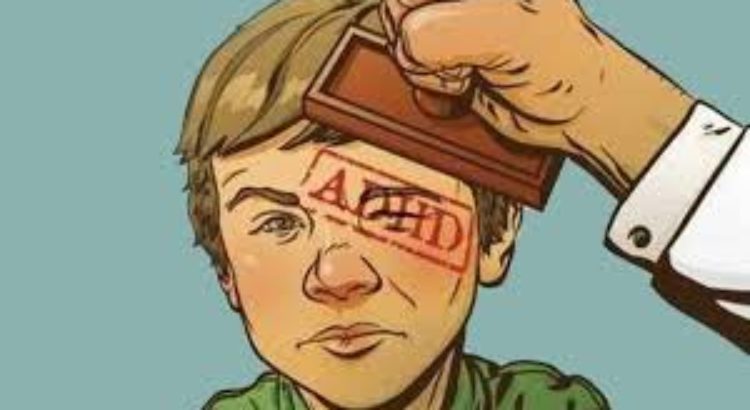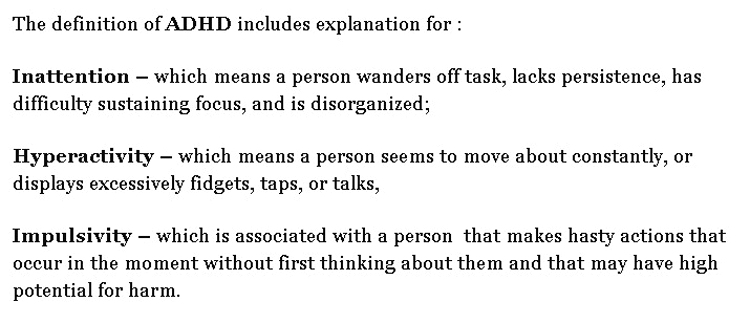Resumen: Jerome Kagan es los psicólogos más influyentes de la 20 ª siglo, que tiene la experiencia y la autoridad moral para comparar la psicología a una pieza podrida de muebles. Un grupo de EE. UU. Los académicos clasificaron a los 100 psicólogos más eminentes del siglo XX en 2002 y colocaron a Kagan en el puesto 22, incluso por encima de Carl Jung (el fundador de la psicología analítica-23) y superior Ivan Pavlov (que descubrió el reflejo pavloviano-24). Puede ser muy sorprendente saber que él cree que el diagnóstico más moderno de TDAH es una mera invención más que una afección grave. Por lo tanto, puede ser sorprendente para usted saber que Kagan cree que el diagnóstico del TDAH (trastorno por déficit de atención con hiperactividad) es una invención que beneficia principalmente a la industria farmacéutica y a los psiquiatras. Kagan es conocido por su trabajo pionero en psicología del desarrollo en la Universidad de Harvard donde ha pasado décadas observando y documentando cómo crecen bebés y niños pequeños, midiéndolos, probando sus reacciones y una vez que han aprendido a hablar, cuestionándolos una y otra vez de nuevo.
Jerome Kagan is the most influential psychologists of the 20th century, who has the expertise and moral authority to compare psychology to a rotten piece of furniture.
A group of US. Academics ranked the 100 most eminent psychologists of the 20th century in 2002 and they put Kagan in 22nd place, even above Carl Jung (the founder of analytical psychology-23rd)and above Ivan Pavlov (who discovered the Pavlovian reflex-24).
It may be very surprising to learn that he believes that the most modern diagnosis of ADHD is a mere invention rather than a serious condition.
So it may be surprising for you to learn that Kagan believes the diagnosis of ADHD (attention deficit hyperactivity disorder) is an invention which mainly benefits the pharmaceutical industry and psychiatrists.
Kagan is well-known for his pioneering work in developmental psychology at Harvard University where he has spent decades observing and documenting how babies and small children grow, measuring them, testing their reactions and once they’ve learned to speak, questioning them over and over again. He is an exceptional and highly-regarded researcher.
Mislabeling Mental Illness
In an interview with Spiegel, Kagan addressed the skyrocketing rates of ADHD in America. He attributes to “fuzzy diagnostic practices” and illustrated his point with the following example:
“Let’s go back 50 years. We have a 7-year-old child who is bored in school and disrupts classes. Back then, he was called lazy. Today, he is said to suffer from ADHD (Attention Deficit Hyperactivity Disorder). That’s why the numbers have soared,” says Kegan in the interview.
When asked about his opinion on the disorder, Kegan told the Spiegel that he believes ADHD is an invention. He thinks that if a child is not doing well in school, the pediatrician gives that child Ritalin, since the cure is available to the doctors and they give the diagnosis.
According to Kagan, the fact that millions of American children who are inaccurately diagnosed as mentally ill because they think there is something fundamentally wrong with them is devastating.
Besides being a psychologist is determined to raise the alarm about this trend, Kagan and others feel they’re up against “an enormously powerful alliance: pharmaceutical companies that are making billions, and a profession that is self-interested.”
Kagan himself suffered from inner restlessness and stuttering as a child, but his mother told him that there was nothing wrong with him, only that his mind was working faster than his tongue.
He thought at the time: “Gee, that’s great, I’m only stuttering because I’m so smart.” If he had been born in the present era, he most likely would have been classified as mentally ill.
However, ADHD isn’t the only mental illness epidemic among children that worries Kagan. Depression is another mental illness that almost started in 1987, when about one in 400 American teenagers was using an antidepressant and the numbers leaped to one in 40 by 2002.
Kegan believes that depression is also another overused diagnosis, simply because the pills are available. Instead of immediately resorting to pharmaceutical drugs, he thinks doctors should take more time with the child to find out why they aren’t as cheerful.
Fuente: https://themindsjournal.com/adhd-is-fraud/









 Users Today : 50
Users Today : 50 Total Users : 35460181
Total Users : 35460181 Views Today : 70
Views Today : 70 Total views : 3418853
Total views : 3418853